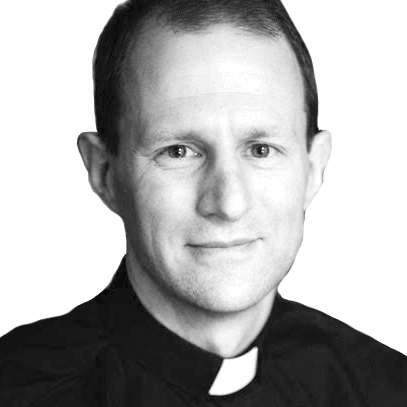The voice of one of the migrants in the so-called “caravan” passing through Mexico has been echoing in my ears all week. On a podcast, I heard a reporter ask what the hardest part of his journey has been. He said, quite simply, “the walking.” He went on to explain that he had two young children with him: The long hours of walking — with little food and water in the blazing sun — were taking their toll on them all. They were hungry and thirsty and tired.
Yet he was convinced that this migrant path was what his family needed: a chance to escape poverty and violence, and he was walking with the hope that his destination would be better than his starting point.
His hope was all the more striking because he was undertaking his journey at this time, in late 2018, when voices from the United States have bitterly spoken words of rejection toward him and people like him. His answer was so straightforward, so honest, free from politics and posturing and calculation. It was a human answer, a bedrock truth of need coupled with an abiding hope, which has lingered with me.
That family, like so many others through the centuries, took the risk of embarking on a dangerous journey with a profoundly uncertain future. That family was — and is — a family of survivors: people who have experienced human pain and suffering in their rawest forms and who have resolved to move forward with an almost inexplicable hope. They speak a truth we need to hear.
We live in an age of survivors. Amid so much division, injury and disillusionment, I have come to believe survivors represent the emerging force of our times. With deep resources of inner strength, conviction, dignity and hope, they give witness to truths we need to recognize. They bring us back to the most basic and most essential aspects of our humanity.
Silenced or marginalized for so long by so many forces, from politicians to religious authorities — including those in my own Catholic Church — as well as by societal pressures and norms, survivors are courageously forcing us to see and talk about realities of harm and diminishment.
They connect us to our past and to the legacy of survivors of previous inhumanities, on the massive scales of slavery, the Holocaust and the Rwandan genocide, and on the individual and societal levels of relationship violence, harassment and discrimination.
In the language of the Hebrew Bible, these survivors are the “remnant,” the faithful few who persevere in the face of exile and destruction. They are the people from whom God rebuilds the community of humankind. Today, they present a crucial counternarrative to discord and demonization, helping us relearn the basic truths of who we are as people and as a society.
This generation of survivors is teaching us in new ways what the meaning of resilience is, and I have come to see these lessons as a sign of hope.
We would do well to look around and see the human courage of the survivors in our midst. They resolutely walk on roads through Central America and Mexico. They bravely give testimony before Senate committees. They worship in synagogues and mosques and churches that have been targeted with hate. They challenge bishops and church authorities to honestly account for past sins and make real changes to church structures.
They help us confront our internalized patterns of gender and sexual inequalities and inspire us to make sure every person can feel safe in their home, workplace, neighborhood and school. They live down the hall in our dormitories, they work on our campus and they sit beside us in class. Sometimes their voices are loud; other times, their silent dignity — and even anonymity — is their boldest statement against dehumanization, calling us to simply recognize their presence.
We are blessed to live in this age of survivors. In their truth, with its suffering and strength, we rediscover our own humanity. May we never be afraid to welcome them and learn from their courage.
Fr. Matthew Carnes, S.J., is an associate professor of government and in the School of Foreign Service. He currently serves as director of the Center for Latin American Studies. As This Jesuit Sees It appears online every other Thursday.














